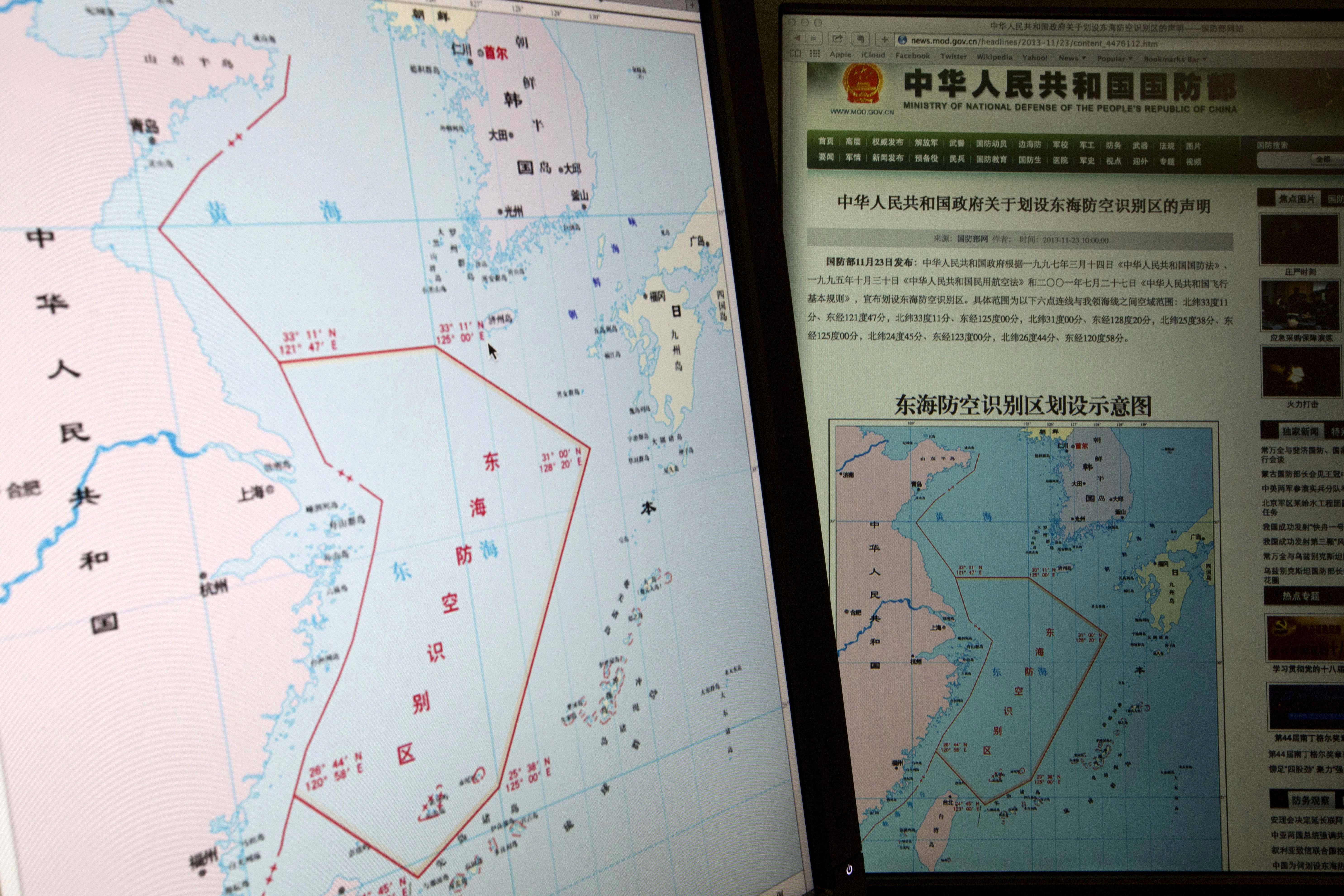It was designed as a forceful response to Japanese assertiveness. But Beijing's creation of an air defense zone may have backfired, experts said, eliciting a strong joint response by the United States and Japan.
Instead of strengthening China's position, the "air defense identification zone" has unsettled and united its neighbors. It provided Washington with a perfect opportunity to reassure its Asian allies that it remains committed to maintaining stability in the Asia-Pacific region.
On Saturday, the Communist Party government said any noncommercial aircraft entering a broad zone over the East China Sea should first identify itself and warned ominously that failure to do so could provoke "defensive emergency measures" by China's armed forces. The statement heightened an already tense standoff with Japan over several disputed islets in the area.



